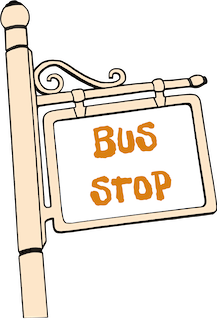

My husband and I have been living our life as digital nomads for two and a half years now.
If you want to know how we got the idea, I explain everything in the “About Me” section in my blog.
I wanted to take stock of these few years, and especially to explain to you how my new life is, its joys and its sorrows.
My definition of a digital nomad:
Simply put, it is a person who no longer has a permanent house, has all of their belongings in a 23-kg suitcase — the authorized weight of checked baggage on planes — who can work from anywhere provided they have an internet connection, and travel from place to place.
I like to define us as “perpetual travelers.” We stay three months in each country we come across. More often than not, we designate our base in a big city where we can find all the amenities. And on weekends, we explore the country we are in.
How do we make a living?
While many imagine us on a “perpetual vacation,” a thought which is always funny and surprising to me, we unfortunately are not. We cannot afford to live without working.
Before we started our new life and to ensure that our dream will not turn into a nightmare, we decided that we needed a fixed salary every month. It was out of the question to scramble in each new place to find a job, which is impossible in many countries, or scratch our heads about how we would pay for our next destination.
The good news for us is that there is a surplus of remote work in my husband’s field. It would then be possible for him to work from anywhere in the world. This was the only condition for our departure. So once he found the perfect job with a guaranteed salary, we packed our bags.
For me, I was finally going to realize my dream — to start a travel blog and write.
What has drastically changed in my life?
Say goodbye to family and friends
We can agree that these are not farewells, but since we have decided to spend only two months in France per year, the separation, especially with my children, has been painful. Know that the youngest one was 22 at the time, I didn’t leave little ones on their own!
It took getting used to the idea that it was going to be just the two of us. My days spent outside, at work with my colleagues, over. Weekend outings with friends, over. Sunday family meals, over.
If at first, it was hard, today our life brings me so much that I no longer miss these things on a daily basis. However, our returns to France are fantastic. It’s a nonstop month of eating and gathering each time, and we take in all that warmth we receive and take it with us on our journey.
Also we are always happy to go back to our nomadic life, though I still shed some tears when kissing my children goodbye.
Alone and uprooted
I must admit that the start of our new life had its sad moments. At the very beginning, we were excited. The first few weeks flew by because, in my mind, it was like a vacation. Then it sank in that I wasn’t going home to our old apartment anymore, and we were not going to have our previous life back.
Then I had moments of doubt where I honestly wondered if I was going to make it. Because as always, there is the dream and the reality. At that time, I started waking up in the night, panicked, wondering where I was and worst of all, where my children were. The funny thing is that before I left, I hadn’t lived with them for four years, and I had never asked myself that question. This episode lasted a few months, and although now it still happens to me sometimes, it is not at all with the anguish of the first months.
What about our relationship in all this?
We also had to adapt our relationship to this new arrangement. When you’re a little outgoing, and your husband can spend his day working without saying a word to you, it’s downright hard. The most important thing, as everybody knows, is communication. We had a conversation, and we devised a system so I can have my moments where we chat and he can have his moments of silence!
You have to be very light
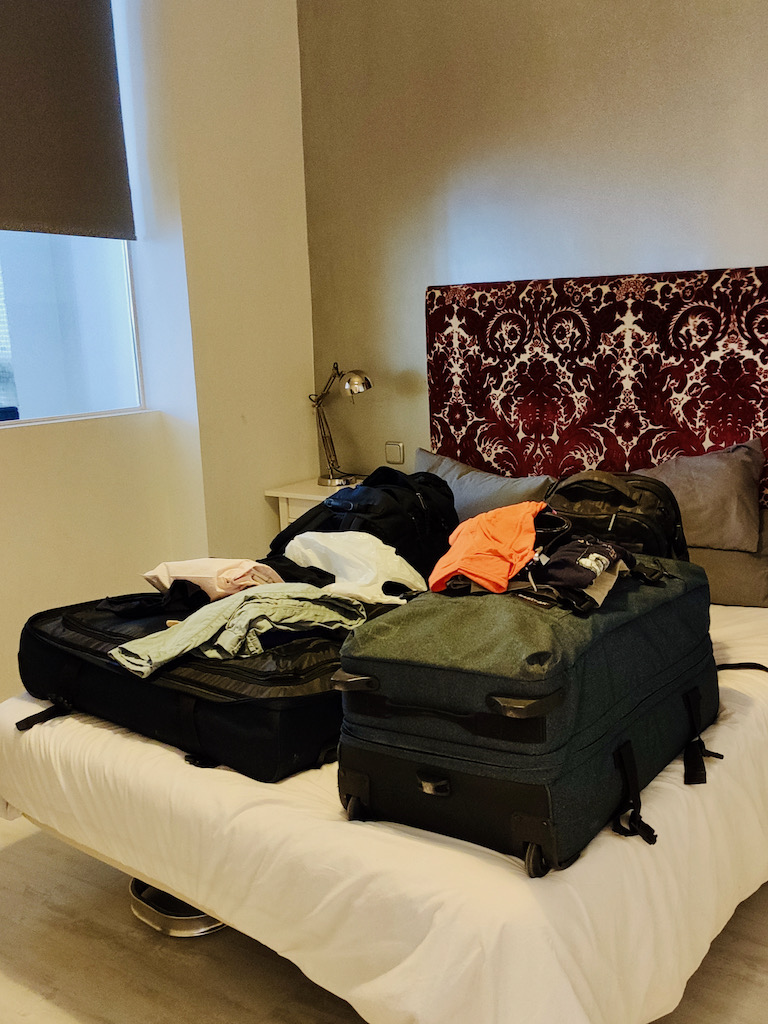

Or, in other words, become minimalist — a new notion for me at that time that scared me a little. For years, I lived surrounded by objects that all had history, and there I had to get rid of almost everything.
To be completely honest, we rented a garage to store souvenirs and items that I couldn’t bear to get rid of yet. (Like decades’ worth of Mother’s Day gifts from children and a lifetime of paperwork.)
But no more furniture or equipment that was going to be used or stored “just in case.” We sold a lot of it, and also gave a lot to charity.
Enduring the heartbreaks, we ended up in a nearly empty apartment. We were left with only an inflatable mattress and some cooking utensils to last us until departure day.
What about today?
After two and a half years of living in a minimalist fashion, things have changed for me. And what was heartbreaking during that time is not so now. I’ve come to realize that our memories are part of us, and we don’t need objects to make them come alive. And there are real benefits to living with just the basics.
A life that is not that easy
Each new destination is a new challenge, and you have to organize your stay. You should always force yourself to recreate your routine, be open-minded, adapt quickly. You have to own the place where you live, the new country, the new culture, and the new cuisine.
Besides, each country has its own rules of conduct, behaviors to adopt or avoid that are best to know.
The first step in our new lives, our new homes
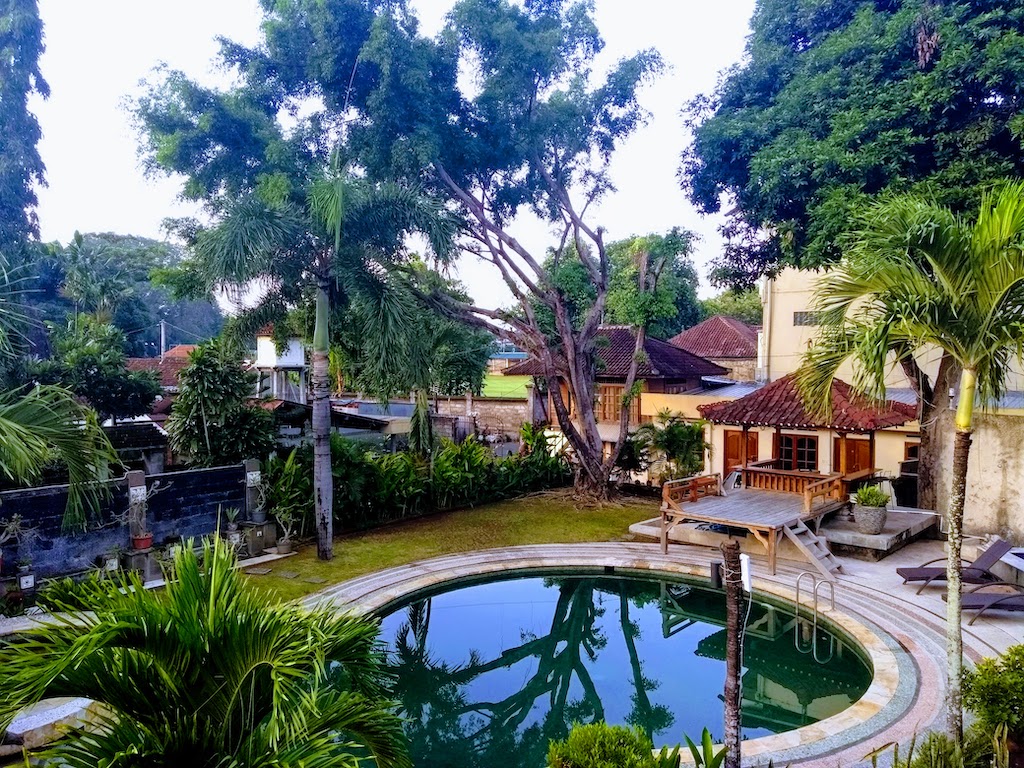





After days of eyeing the perfect place on the internet, when you arrive in a new city, it’s time for you to discover the apartment that will become your home for several months. As soon as you open the door, you see if it lives up to your expectations, which is super important and can condition the stay.
The first few days are often filled with emotion. For me, this is the haven of peace where I can relax after a long day out.
Often, we rearrange a bit to our liking by moving some furniture around — one way to make the space our own.
What are we eating?
And yes, nomads or not, that is the recurring question.




You have to locate the stores for your groceries, and most importantly, find the products that suit your taste.
After a few days of research, you can find what you need, even if sometimes you have to change your diet. To my delight, chances are you can find fresh fruits and vegetables in small convenience stores.
Sometimes we discover new products that we are sure to miss on the next trip. I realize today that I no longer crave products from my native France, but others that I have really enjoyed and discovered elsewhere — and that ultimately I cannot find when I return to France!
Of course, there is always the possibility to go to the stores for expatriates and which sell international products, but it’s going to be a missed opportunity. Besides being super expensive, discovering a country also involves learning about its food.
How I choose our accommodation
My little list of requirements:
- A separate bedroom
- A kitchen, with a real stove and an oven
- A large comfortable sofa
- Near a coworking space. If possible, at a walking distance, or less than 20 minutes by bus
- With a gym nearby
The last two parameters will take you to expatriate or tourist areas, which are more accessible via public transport. Often the rental prices are a bit higher, but it’s worth it. Otherwise, everything might be a bit more complicated and restrictive.
The separate bedroom is to have more space but also to allow us to work from home. We have to have at least two rooms if we want some privacy.
The kitchen and the sofa are for my convenience.
Gyms
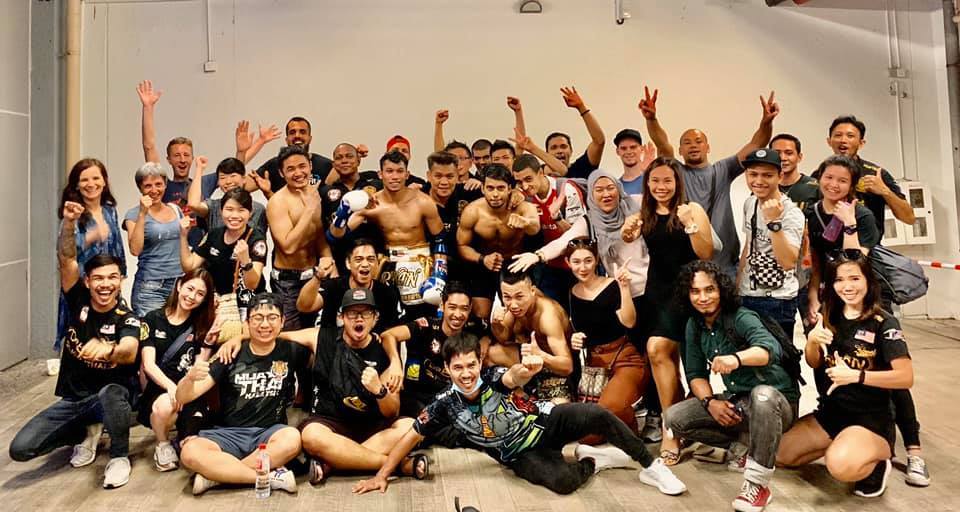

Finding a gym is pretty straightforward. In most countries, there are monthly subscriptions with no registration fees. The prices are often high compared to the cost of living in the country but still quite affordable.
And anyway, sport is part of my life, and I can’t help it especially when you spend all day sitting in front of a computer.
Another option that I particularly like is the local sport clubs, where it is also easy to join. We tried boxing, Muay Thai, and CrossFit clubs. Be aware that when the lessons are in the local language, you have to be extremely alert and follow the other participants’ lead.
Co-working spaces


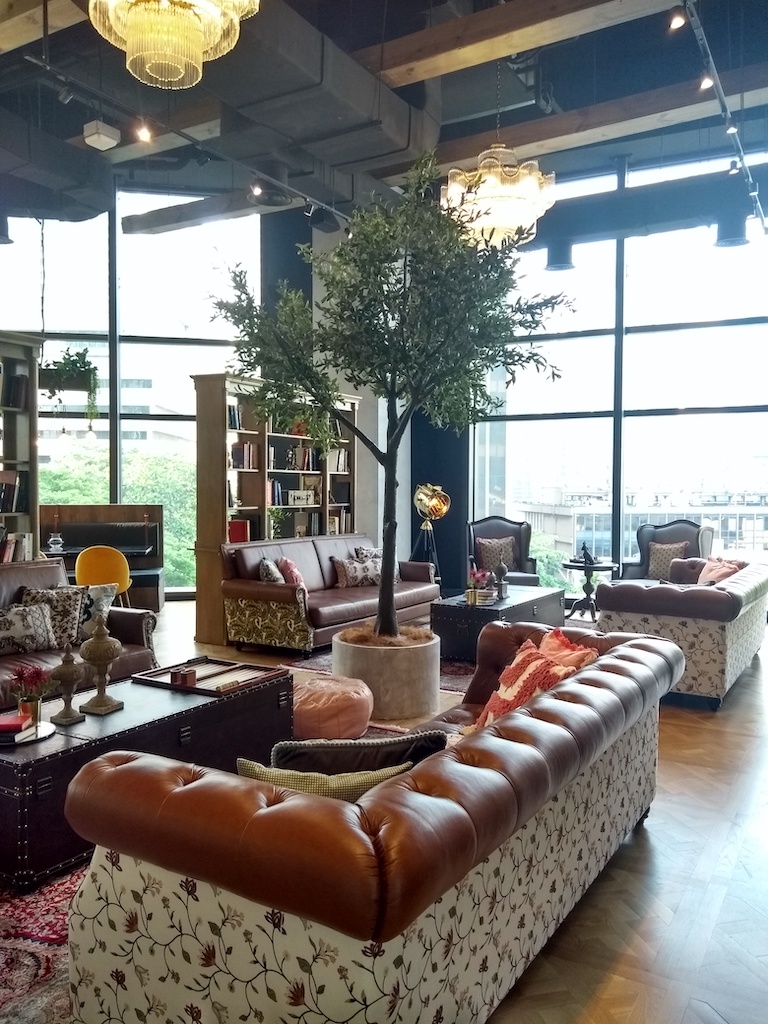

They’re easy to find and often offer free trials. Most of the time, the space is modern in design, and the welcome is always warm. It’s good to get out of the house, have a “real office” and people around you even if contact with other workers is rare.
There we are, the only thing left to do is to plan our weekends and enjoy life!
Expectations Versus Reality
Expectation
We organize our work as we want, and we work from where we want.
This idea was one of the first things I read when I started researching the life of a digital nomad. In theory, this is true.
Reality
From where we want
We often see the “postcard” — a digital nomad on a beach, a cool drink at the fingertips; sun, white sand, and the ocean in the background.
So maybe some people can do it, but for me working at a temperature of 30˚C with the dazzling sun reflecting on your screen and the wind blowing sand in your eyes… paradise becomes hell. You might as well keep the beach for the moments when you can take full advantage of it. It will be better to find more conducive places to work such as a shady balcony with a nice view.
When we want
Not too much if you have a job and 40 hours a week to do. Whether you are employed or self-employed, nomadic or not, you’ll have to fit them into your schedule.
Maybe some people need just a few working hours a week to live in a country with a low cost of living. In those cases, I admit they have the freedom. Not all countries are cheap, and if you want to visit the places you want, you need to ensure your income for the following months.
A disciplined routine is also essential if you want to last in the long run when working remotely. One can, of course, exchange a workday for a weekend day, work more hours to make way for your plan. But it must remain occasional to keep your peace of mind.
Personally, we have defined our working hours, and we organize our leisure activities around this schedule. And it works great!
Expectation
We make lots of friends.
Reality
We meet people, but we don’t make friends.
It’s pretty hard to meet people and keep in touch.
We often hear people say that they do not know their neighbors, even after several years. For us, our neighbors change every three months.
Groups to meet
That said, the best way to meet people are Facebook groups and apps like Meetup which offer activities. We avoid the pub crawls and favor hiking, dining out to restaurants, or cooking lessons… during which it is easier to have discussions. But don’t expect to make friends. You will either join people like you who are not staying long, or expatriates who do not want to go further in a relationship knowing that you will have to leave soon. On the other hand, you can definitely hope to have a good time, see the world, chat, laugh, and make good memories.
The co-working spaces
I had also learned about co-working spaces where you get the chance to meet people and discuss easily. I experienced it once in Bali, an idyllic place where many nomads go. The establishment has a full-time person who organized meals, aperitifs, and excursions to promote social interactions. Otherwise, it is unimaginable to sit next to someone who is working and chat.
Another point. Unlike in Bali where the co-working space was only used by foreigners, everywhere else, these offices are mostly used by start-up employees and local entrepreneurs. They are not in the same mindset and are not looking to meet people. There is also the language barrier – they don’t always speak English.
Expectation
You can travel around the world.
Reality
This is where expectations and reality met, to my delight.
Final point
I love this life and wouldn’t change it for anything in the world. I’ve learned so much since we left, things about the world and me as well. This perpetual introspection and this need for adaptation have made me stronger and much more confident.
About the world, you learn about life in different countries — ones we’ve barely heard of and are coming alive before our eyes.
I realized that this nomadic kind of life does not attract as many people as I thought. Many like to travel but they also look forward to going home.
On the other hand, if you decide to leave, I promise you will not regret it. Traveling this way has changed my lifestyle, my goals for the future. Owning things has become superfluous, and now all I want are memories and stories to tell, beautiful photos, and magical moments. I’ve never felt so free. I can leave or stay, keep traveling or go home. The choice is mine, and it’s wonderful.


